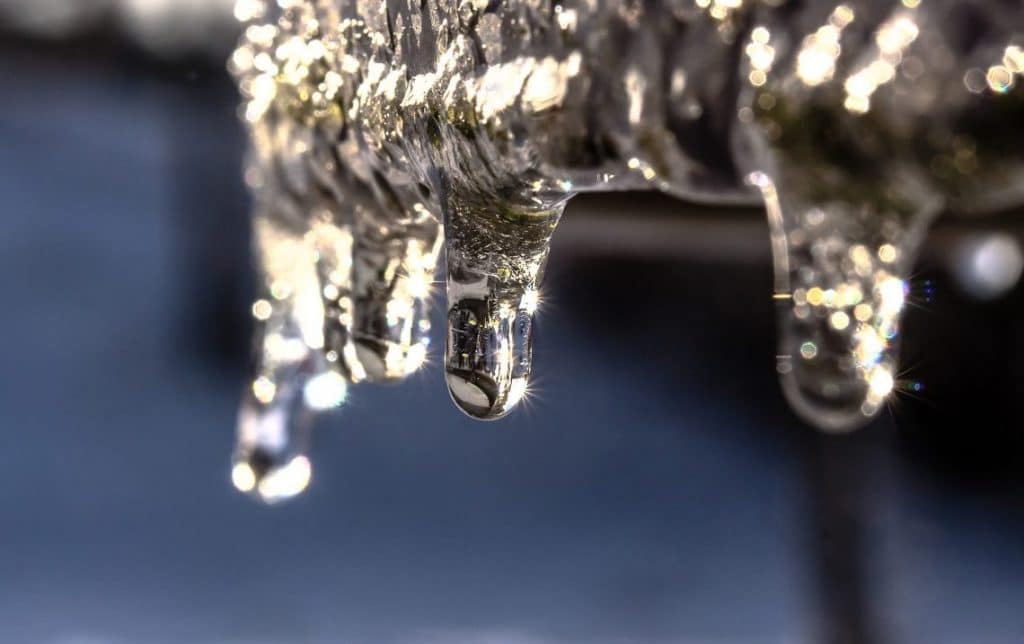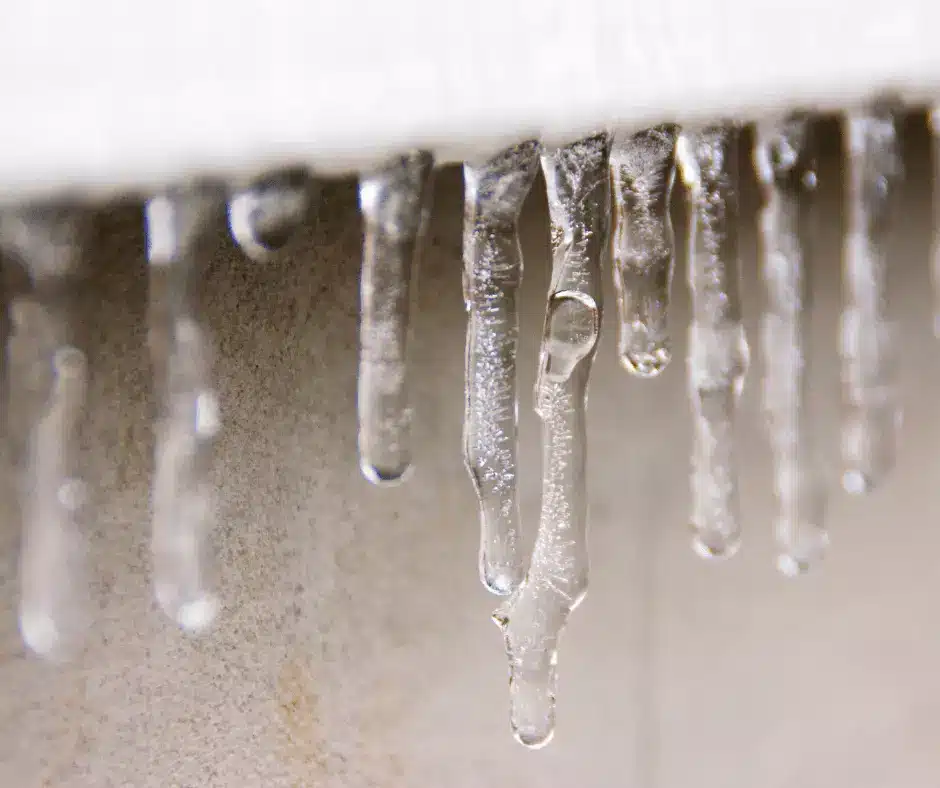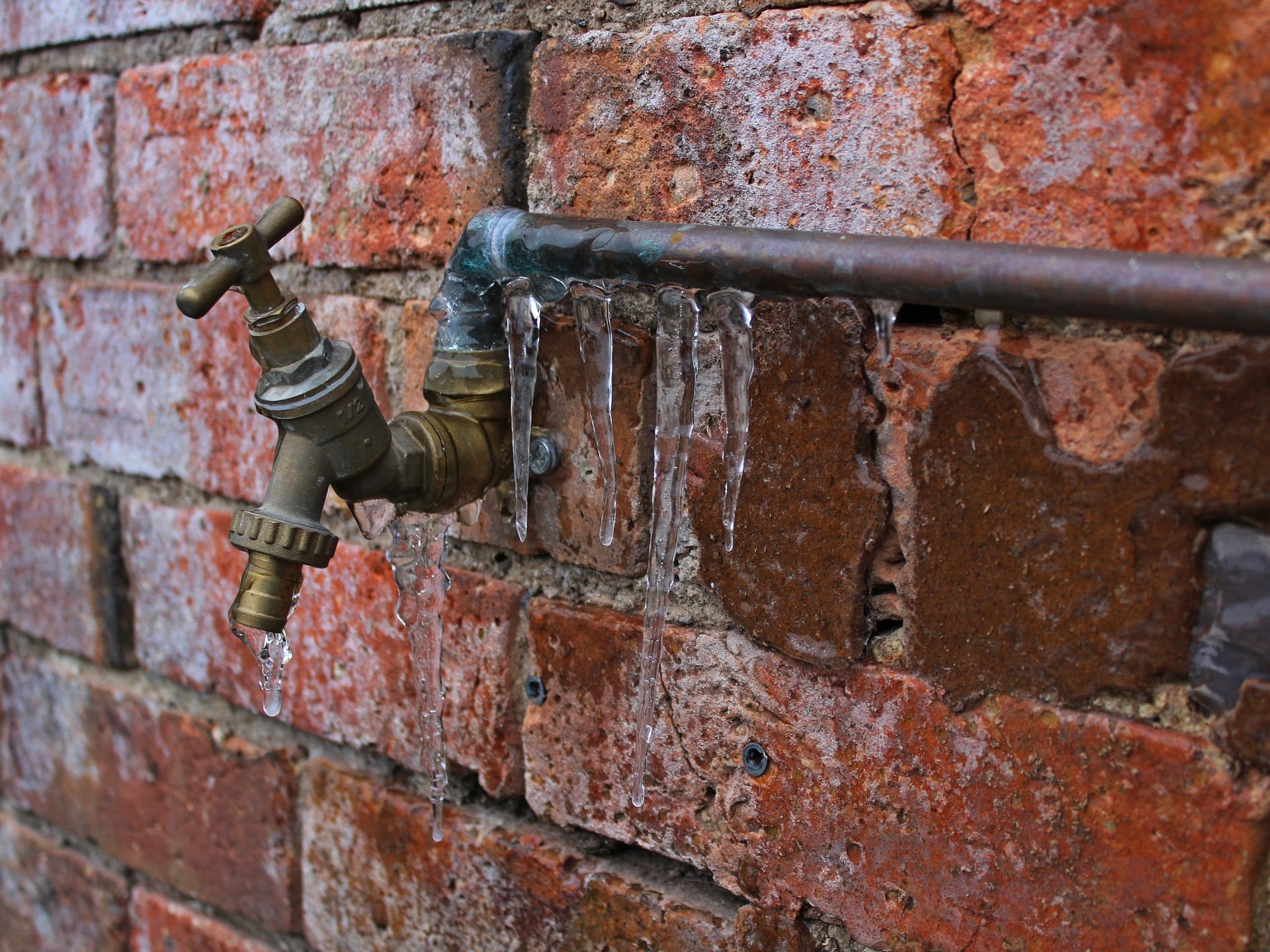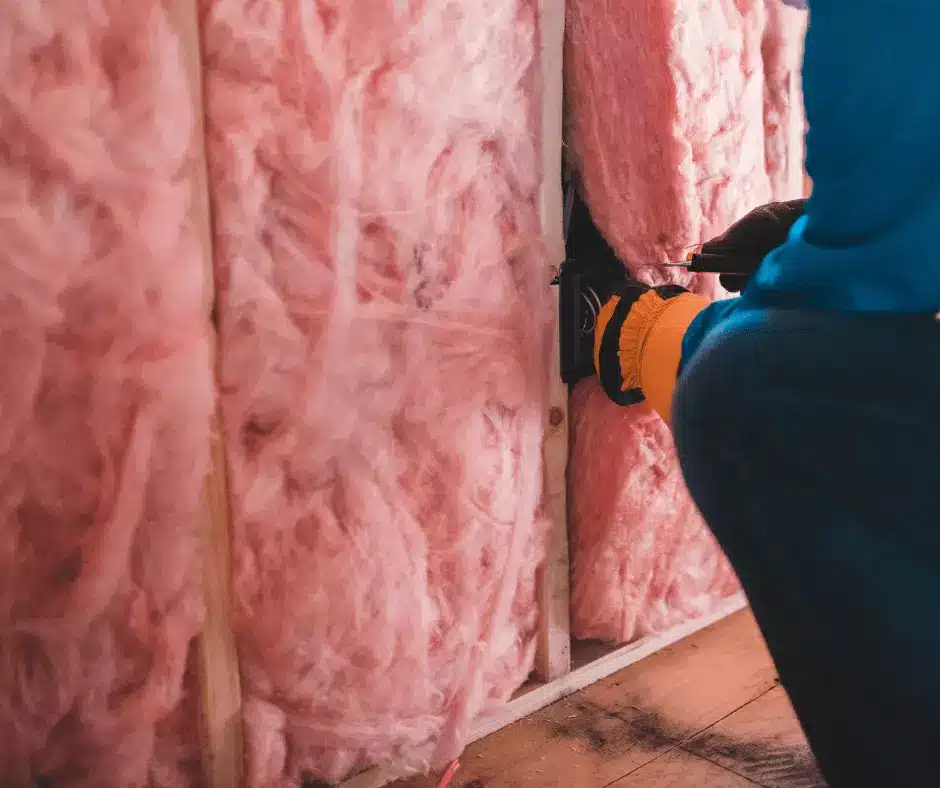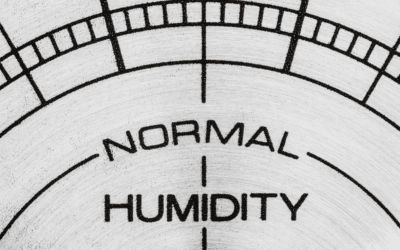When the temperatures in Hampton Roads drop and winter freezing begins, it is important for you to monitor your water pipes to prevent frozen pipes. Your pipes are in danger of freezing or even bursting if the external temperature falls below 32-degrees Fahrenheit. If the pipes freeze then that means no running water for your home. Both cold and hot water will be inaccessible to your home if your pipes freeze. A more concerning issue, if your pipes freeze, is the potential for pipes to burst. Pipes may burst if the pipes freeze and the water inside the pipes freeze. Water expands when it is frozen. Therefore, if the water freezes inside of the pipes then the frozen water can expand causing pressure on the pipes. An increase in the pressure on the frozen metal pipes may force them to burst. Burst pipes are a much more serious (and expensive) plumbing problem than frozen pipes.
PIPES TO MONITOR
Hampton Roads generally has milder temperatures, and thus many older homes do not have proper insulation to prevent from freezing.
- Pipes on the exterior walls of your home are more prone to freezing if the temperatures dip below 32-degrees Fahrenheit.
- Attic and basement pipes are also more prone to freezing. Those spaces in the home are generally less insulated and more affected by changes in temperatures.
CLUES THAT YOUR PIPES MAY BE FROZEN
- If you experience strange smells coming from your drains or faucets, then you may have a pipe in your home that is frozen.
- If there is little or no water coming out of your faucets and spigots, then you may have frozen pipe in your home.
- If you see frost on exposed pipes, then the temperature may have been declined to a point that your pipe is on its way to becoming frozen.
- If you find that your water temperature is not as hot or warm as is normal, then you may have a frozen pipe in your home.
STEPS TO PREVENTING PIPES FROM FREEZING
- Keep the heat on in your home even if you are on vacation or away for an extended time. Frequently pipes freeze and burst while homeowners are away on vacation and have turned off their heat. No one wants to come home to frozen pipes and potential water damage. If you will be gone for an extended length of time, even setting your home’s heat temperatures to 50-degrees will provide enough heat for internal pipes to keep them from freezing in your absence.
- Allow your faucets to drip during freezing temperatures. A slight drip in your home’s faucets keeps the faucet open and helps to relieve potential pressure from freezing.
- During freezing temperatures, another way to prevent internal pipes from freezing is to keep cabinet doors that house pipes open in your home. Keeping these doors open will help to elevate the temperatures surrounding the pipes under sinks and such and thus reduce the likelihood of freezing.
- Sealing holes or cracks in the walls of your home, especially near pipes, can help keep cooler temperatures out and warmer temperatures inside.
- Keep exterior faucets from freezing during extremely cold temperatures by covering spigots with hard faucet covers.
- With frequently prone to freeze pipes, you may want to add insulation or heating tape to the pipes. If the pipes are easily accessible this option can be a cost-efficient way to reduce the potential for freezing.
Call The Experts
Contact Smith & Keene for our team of highly trained plumbers to evaluate pipes in your home that may need attention. In the unfortunate event that your pipes do freeze and burst, turn the water off in your home and call Smith & Keene quickly to help restore water to your home.
Contact Us
When your system isn't working, IT'S TIME to contact the HVAC experts in Hampton Roads, Smith & Keene



